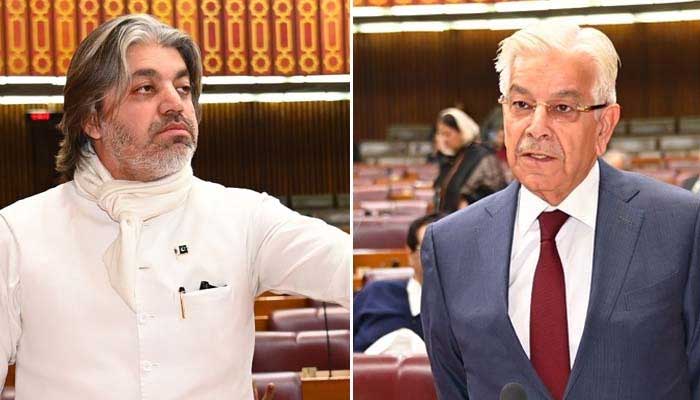US
Against all odds, over 50 women start own businesses in militancy-hit Bara
字号+ Author:Smart News Source:Business 2025-01-14 04:01:14 I want to comment(0)
KHYBER: Defying tribal customs, more than 50 enterprising women have started own businesses from their homes in different parts of the militancy-affected Bara tehsil here to ward off any adverse reaction from the local community. Driven by sheer poverty and rising inflation, these tribal women, including some unmarried ones, opened shops to manage household expenses, fund the medical treatment of husbands, and support their children’s education. Their inspiration came from their time in camps during decade-long displacement where they would interact with part-time women shopkeepers in the neighbourhood. The shops have been opened in Karigarh Garhi, Sheikhabad, Spin Qabar, Yousaf Talab, Gandaw and Doora localities of Sipah, Nala and Fort Salop villages of Malakdinkhel, Jan Khan Kalay, Peekoro Khwar and Jargo Khwar areas of Bar Qambarkhel, and Meelwat, Merikhel and Dro Adda localities of Akkakhel. They took initiative to manage family expenses, medical bills, children’s education approached some of these women through male family members, mostly young sons, who said that men were not allowed to go to those shops, while local women were “allowed” to shop there mostly in the daytime. Mohammad Burhan, a 10-grade student from Malak Danday village near Spin Qabar locality, told that his mother had showcased mostly women-specific items along with shoes for children at her shop which she established in 2016 soon after her family’s repatriation to Bara. He said his father had to take early retirement from his teaching job in a government school after he was diagnosed with cancer, so her mother decided to open the shop to provide for the treatment of her husband and also to educate three of our brothers. The student said he, along with one of his brothers-in-law, helped her mother bring merchandise from wholesale markets in Peshawar and display them at the home-based shop. “These items include women and children garments, cosmetics items, and shoes for both women and children and some household and kitchen items,” he said. A young girl in Dwa Jangi locality of Sipah had opened her shop only recently and was simply overjoyed with her initial profits as the money she earned has added to her family purse considerably while she started contributing in her brothers’ education while buying them books, uniform and shoes. One of her younger uncles, Mohammad Aamir, told that her niece faced no resistance or opposition from anyone in the family as the new activity was women-specific and provided local women with the liberty to operate the shop and buy items of their choice. “Local women feel more comfortable in coming to these shops as they feel more secure and are more independent in buying items of their own choice alongside socialising with other local women,” he said. The girl’s uncle said that she was deeply interested in educating her brothers and sisters while also contributing to the family budget to cater for the monthly expenses. “Though she is not good in calculating profits earned from her sales, she has so far sold items worth Rs250,000 during the last two and a half months of her shop opening,” he said. He added that overall, the family was supportive of her “innovative” business venture. Family members of these women said they also received financial support from the Sarhad Rural Support Programme and Islamic Relief Pakistan as part of their rehabilitation plan for the returning families of Bara in 2016 and 2017. They said that while a majority of the families “squandered” those funds given to local women for initiating a business activity for them, the remaining over 50 women utilised those funds for their personal and family benefits and opened those shops. Local social activist Turab Ali said those shops not only benefited their women owners but also provided an opportunity to other women to buy items of their choice from there without any fear and harassment, which they face in marketplaces. He added that such an activity was simply unthinkable in Bara a decade ago but currently, the situation had changed and local women utilised the opportunity to their personal and collective benefit. Mr Ali said more financial assistance from both government and non-governmental organisations along with skill development training for women and regular awareness sessions could further empower tribal women along with providing them with financial independence.
1.This site adheres to industry standards, and any reposted articles will clearly indicate the author and source;
 Related Articles
Related Articles-
300,000 houses for Sindh’s flood-hit families completed
2025-01-14 02:50
-
Two die in fog-related road crashes
2025-01-14 02:25
-
Two policemen gunned down by unknown assailants
2025-01-14 02:24
-
Masters Cup starts today
2025-01-14 01:56
 User Reviews
User Reviews Recommended Reads
Recommended Reads Hot Information
Hot Information- Michelle Obama urges people to vote for Kamala, Walz for a ‘better future for our kids’
- Crackdown
- Another suspect linked to Greece boat tragedy held in Gujrat
- Three Palestinians killed in Israeli strikes near Rafah
- Airlines ground Bali flights after volcano erupts
- CM lays foundation of hospital
- Restoring trust, building institutions to speed up Syria’s reconstruction
- Valencia appoint Corberan after sacking Baraja
- PSG boss warns Ligue 1 streak not enough to win Champions League
 Abont US
Abont US
Follow our WhatasApp account to stay updated with the latest exciting content













